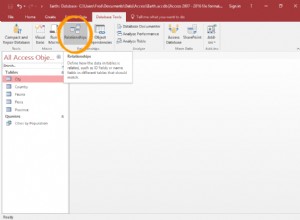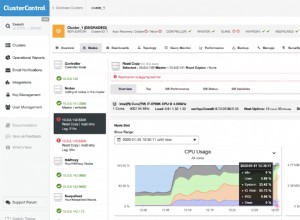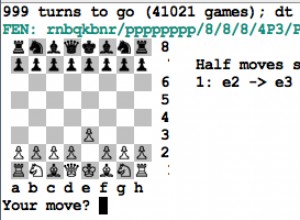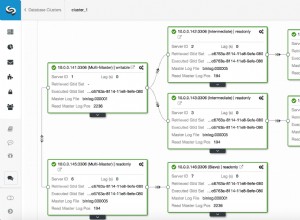CREATE DEFINER = 'root'@'localhost'
PROCEDURE test.GetHierarchyUsers(IN StartKey INT)
BEGIN
-- prepare a hierarchy level variable
SET @hierlevel := 00000;
-- prepare a variable for total rows so we know when no more rows found
SET @lastRowCount := 0;
-- pre-drop temp table
DROP TABLE IF EXISTS MyHierarchy;
-- now, create it as the first level you want...
-- ie: a specific top level of all "no parent" entries
-- or parameterize the function and ask for a specific "ID".
-- add extra column as flag for next set of ID's to load into this.
CREATE TABLE MyHierarchy AS
SELECT U.ID
, U.Parent
, U.`name`
, 00 AS IDHierLevel
, 00 AS AlreadyProcessed
FROM
Users U
WHERE
U.ID = StartKey;
-- how many rows are we starting with at this tier level
-- START the cycle, only IF we found rows...
SET @lastRowCount := FOUND_ROWS();
-- we need to have a "key" for updates to be applied against,
-- otherwise our UPDATE statement will nag about an unsafe update command
CREATE INDEX MyHier_Idx1 ON MyHierarchy (IDHierLevel);
-- NOW, keep cycling through until we get no more records
WHILE @lastRowCount > 0
DO
UPDATE MyHierarchy
SET
AlreadyProcessed = 1
WHERE
IDHierLevel = @hierLevel;
-- NOW, load in all entries found from full-set NOT already processed
INSERT INTO MyHierarchy
SELECT DISTINCT U.ID
, U.Parent
, U.`name`
, @hierLevel + 1 AS IDHierLevel
, 0 AS AlreadyProcessed
FROM
MyHierarchy mh
JOIN Users U
ON mh.Parent = U.ID
WHERE
mh.IDHierLevel = @hierLevel;
-- preserve latest count of records accounted for from above query
-- now, how many acrual rows DID we insert from the select query
SET @lastRowCount := ROW_COUNT();
-- only mark the LOWER level we just joined against as processed,
-- and NOT the new records we just inserted
UPDATE MyHierarchy
SET
AlreadyProcessed = 1
WHERE
IDHierLevel = @hierLevel;
-- now, update the hierarchy level
SET @hierLevel := @hierLevel + 1;
END WHILE;
-- return the final set now
SELECT *
FROM
MyHierarchy;
-- and we can clean-up after the query of data has been selected / returned.
-- drop table if exists MyHierarchy;
END
Pode parecer complicado, mas para usar isso, faça
call GetHierarchyUsers( 5 );
(ou qualquer ID de chave para o qual você deseja encontrar a árvore hierárquica).
A premissa é começar com a CHAVE com a qual você está trabalhando. Em seguida, use isso como base para ingressar na tabela de usuários NOVAMENTE, mas com base no ID PARENT da primeira entrada. Uma vez encontrado, atualize a tabela temporária para não tentar juntar essa chave novamente no próximo ciclo. Em seguida, continue até que nenhuma chave de ID "pai" possa ser encontrada.
Isso retornará toda a hierarquia de registros até o pai, independentemente da profundidade do aninhamento. No entanto, se você deseja apenas o pai FINAL, pode usar a variável @hierlevel para retornar apenas o último no arquivo adicionado, ou ORDER BY e LIMIT 1




